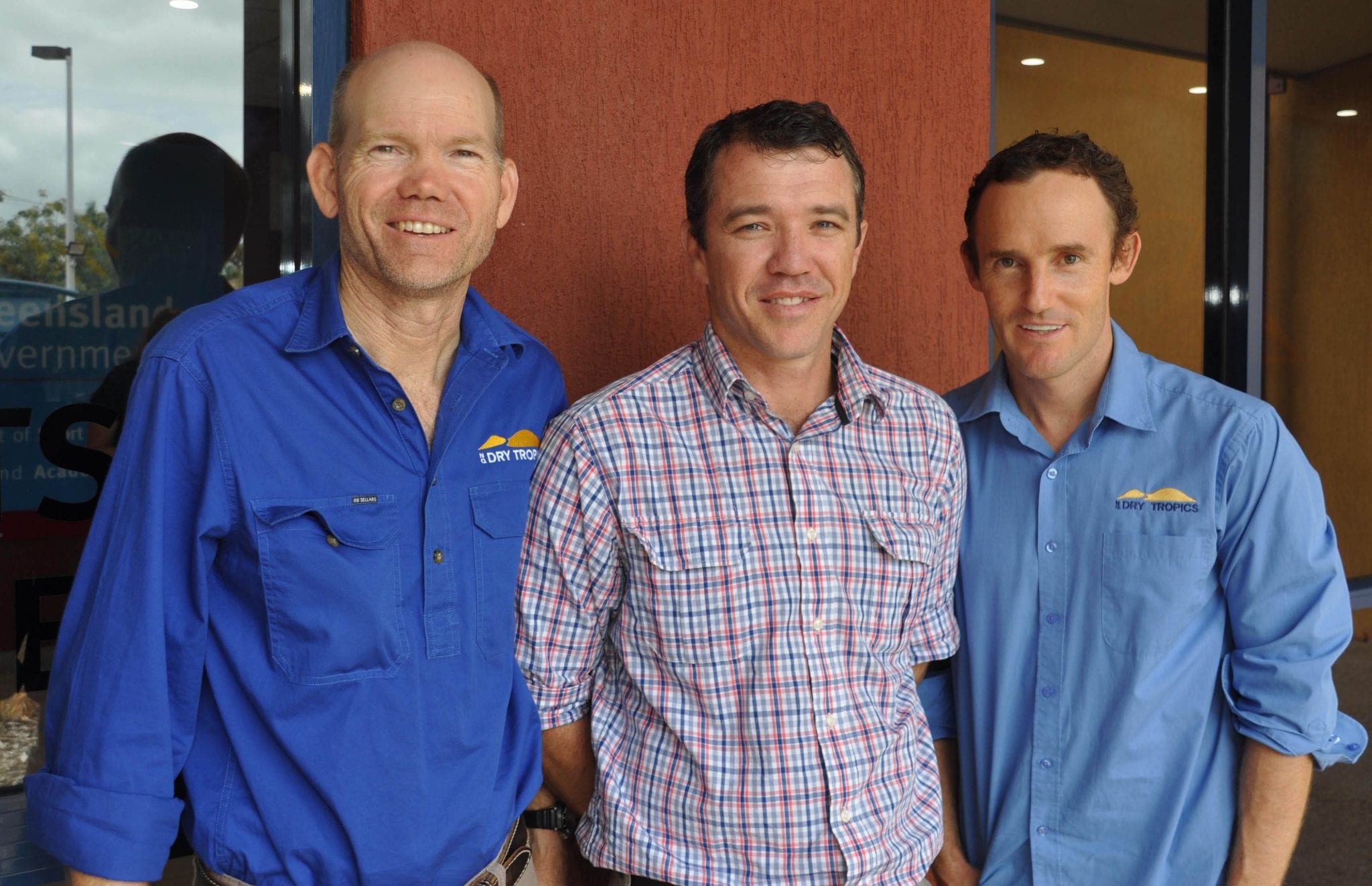DAF representative Adam Northey (centre) is flanked by NQ Dry Tropics staffers Rob Hunt (left) and Rodger Walker
Forum investigates best returns for graziers and reef
BURDEKIN graziers are adopting management practices for a more sustainable and productive farming future – and the results are in to prove it.
The estimated annual average total suspended sediment load leaving Burdekin catchments had reduced by 17.7 per cent in the 12 months to June 2016.
These results are in the latest report card from the Paddock to Reef Integrated Monitoring, Modelling and Reporting program that publishes progress about Reef Plan’s targets.
The sediment reduction, which received an A rating on the report card, was mainly down to changes in grazing land management.
NQ Dry Tropics hosted a forum in Townsville in late February to review the report card results and cross check with the region’s current funding priorities. Government, industry, researchers, scientists, natural resource managers and landholders representatives attended.
Water quality is a big issue in the Dry Tropics of North Queensland, and this year NQ Dry Tropics launched the implementation phase of its Landholders Driving Change (LDC) project to tackle erosion and improve land management, productivity and Reef water quality in the Burdekin region.
The project is focused on the high-priority Bowen, Broken, Bogie (BBB) catchment near Bowen and Collinsville, which produces almost a quarter of the total fine sediment load that ends up on the Reef.
NQ Dry Tropics’ LDC Land Management Support Coordinator Rodger Walker said it was positive to see a reduction in sediment load leaving Burdekin catchments but that this reduction needs to continue.
“The Landholders Driving Change project is one such initiative to facilitate practice change to do just that,” Mr Walker said.
“The project provided opportunities for the grazing community to drive and influence the design of the project, right from the start.
“As a result the BBB community is focused on implementing and evaluating a range of innovative tools and practices to achieve enduring sustainable and productive land management practices that reduce sediment loss.
“Monitoring and evaluation is crucial to the credibility of the project. Credibility is essential to encourage graziers and other land managers to participate, and to build ownership by the BBB community,” he said.
NQ Dry Tropics Paddock to Reef officer Jade Fraser agreed and said Landholders Driving Change reflected targeted investment aimed at helping landholders make effective land management practice changes.
“Farmers are practical people. Putting farmers at the centre of the solution to yield results for the Great Barrier Reef and to improve farm production, nets long-term gains for both,” Mr Fraser said.
“NQ Dry Tropics and its delivery partners work hard to engage farmers’ interest in monitoring by working directly with farmers to trial and validate their farm management practices.
“Data is presented in a way that they can see the impact of their management planning and practices and can therefore better argue what is best practice for their farm.
Landholders Driving Change is one of two Major Integrated Projects (MIPs) recommended by the great Barrier Reef Water Science Taskforce. The Queensland Government has committed a total of $33 million to fund both MIPs.

